SUMMARY
This is AI generated summarization, which may have errors. For context, always refer to the full article.
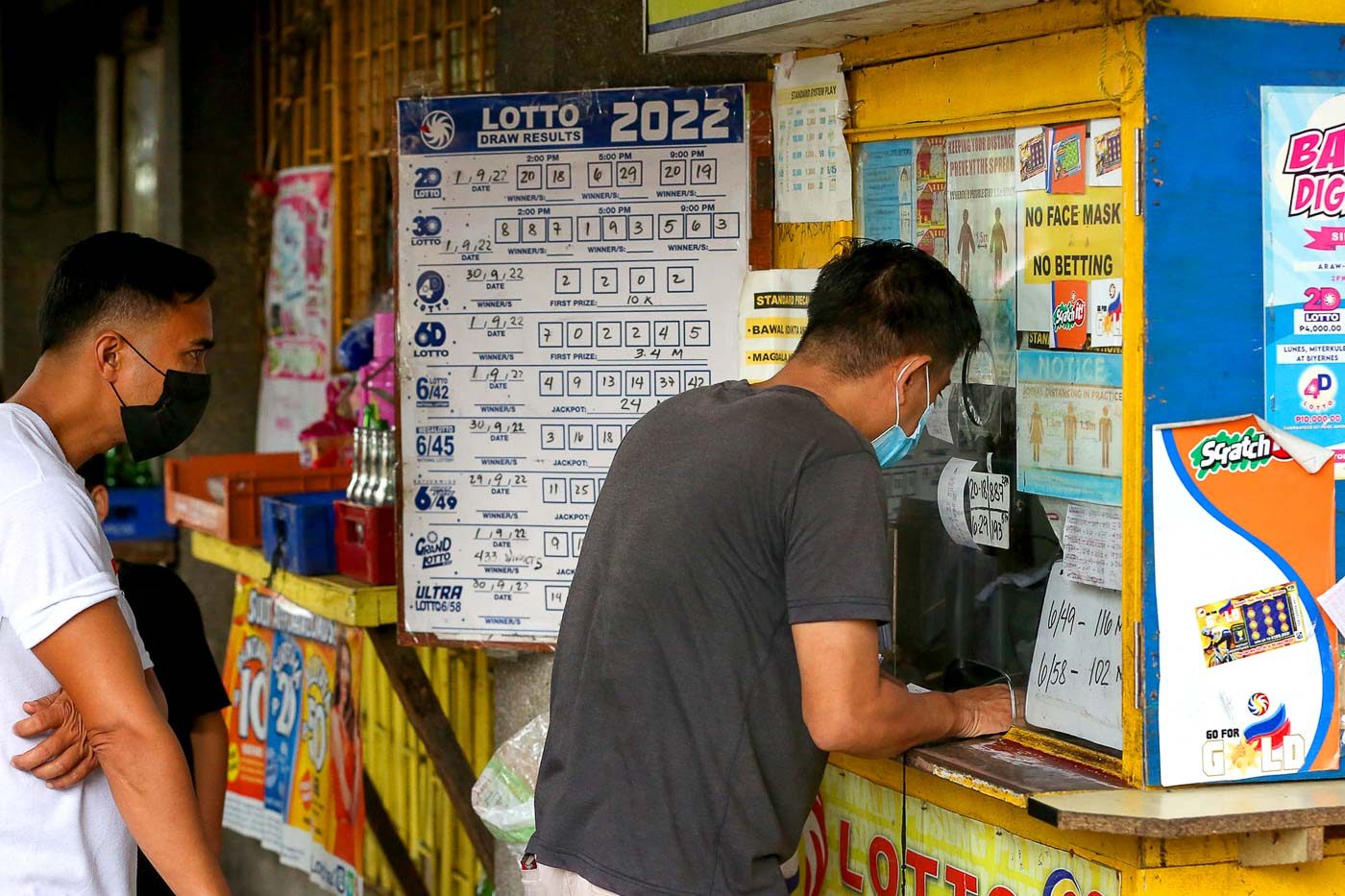
MANILA, Philippines – The curious cases of alleged lotto bettors winning multiple times in just a few months last year – an unlikely event given the low statistical probability of winning the lottery – has been clarified.
In a Senate games and amusement committee hearing on Monday, March 18, Senator Raffy Tulfo presented four questionable instances of supposed bettors winning the lottery multiple times in the second half of 2023.
The most unbelievable instance is the case of “Person B” – who supposedly won 36 times from July to December 2023 with total winnings of P8.325 million. In the months of August and November, the supposed bettor won P225,000 nine times each month. (Editor’s Note: An earlier version of this story reported that “Person B” won 43 times. The correct number is 36 times.)
In the case of “Person A”, the supposed bettor won 14 times with total winnings of P1.026 million; “Person C” won 13 times and collected P378,000; and “Person D” won 17 times and collected P561,966.
What made these cases more questionable was the fact that the supposed winners did not give their tax identification number (TIN) when they claimed their prizes.
Philippine Charity Sweepstakes Office (PCSO) officials led by General Manager Mel Robles clarified during the hearing that all these multiple winnings involved “digit games,” such as 2D (2 digits) lotto and 3D (3 digits) lotto, where the chances of winning are higher than in jackpot games such as 6/42, 6/45, 6/49, and 6/58. They said that no winner has won more than once for jackpot games.
In 2D lotto, a bettor selects two numbers from 1 to 31. The player can bet from P10 to P500, and the numbers must match the winning combination in exact order. The PCSO has three draws of 2D lotto daily.
In 3D lotto, a bettor selects numbers from 0 to 9 from each column, and the numbers must be in the same order as the winning combination if playing straight. Bettors can choose lucky picks to get their numbers. A bet of P500 wins P225,000.
Claimants, not bettors
Lauro Patiag, PCSO assistant general manager for general services, said those involved in these so-called “multiple winnings” were “claimants” who collected the prizes on behalf of bettors.
In rural areas, he said it has become a practice for the winner of the lower-tier games to approach the lotto agent and ask the agent to claim the prize.
“We have a [PCSO] branch office in each province, but we have lotto agents in far-flung areas. For practical reason, nakiki-claim sila (they ask a favor to claim the prize) because they trust him,” Patiag said.
In the case of “Person B,” Missel Hamak, branch manager of the PCSO’s Agusan del Norte Branch, identified the claimant as a lotto agent – an owner of a lotto outlet – who lives in Butuan City, Agusan del Norte in Mindanao.
Hamak said the agent acted as the claimant for bettors who placed P500 bets on the 3D lotto game. He collected the winnings for these bettors, which is why the PCSO list submitted to Tulfo has one person supposedly winning a total of 36 times; in one other instance, a player placed a P1,000 bet and won P450,000, and the lotto agent had to collect the bet in Manila.
“The main means of transportation in Butuan City is tricycle, and his lotto outlet is located 15 kilometers, very far, not accessible,” he said in a mix of Filipino and English.
Hamak said the 3D lotto game is very popular in Mindanao. The normal bet is only P10 for 3D lotto.
“Actually, sa Mindanao po, maraming sugarol, even at the time of jai-alai. Malakas po talaga [tumaya], maski may business, magtataya ng malaki-laki,” he said.
(Actually, in Mindanao, there are many gamblers, even during the time of jai-alai. Many people bet big, even though they already have a business, they bet big.)
Hamak said one reason why betting P500 on 3D lotto is preferred by gamblers is because winning this game means they can collect their prize in the province.
If a person bets P1,000 and wins, he said the winner would have to travel to Manila to claim his prize of P450,000, so the players prefer to bet P500 since the prize would not breach the P300,000 ceiling of big winnings that have to be collected in Manila.
“[In 3D lotto] pinaka-convenient na taya na makaka-claim ka below P300,000 na hindi ka na pupunta ng Manila,” Hamak said.
(It’s the most convenient where you can claim a prize below P300,000 and you don’t have to go to Manila to claim your prize.)
In a statement on Wednesday, March 13, the PCSO said “some winners would not want to go to their branch because of added expenses, so the lotto agents would act as Good Samaritans or do it for them.”
PCSO officials said during the over two-hour hearing that since the claimants only collected the winnings on behalf of bettors, they did not give their TIN.
Ralbert John Tibayan, representing the Bureau of Internal Revenue’s Legal and Legislative Division, said that after checking their records, the bettors in the “multiple winnings” cited by Tulfo all had TINs.
Tulfo raised the possibility, however, of the lotto agent conniving with bettors by giving them “tips.” He asked that the lotto agent who claimed winnings 36 times be summoned to the next hearing.
Money laundering?
Meantime, Tulfo asked the Anti-Money Laundering Council (AMLC) to investigate a bettor who invested P90 million in Super Lotto 6/49 last January 16 and won P640 million.
Tulfo disclosed during the hearing that the lotto player placed three P30-million bets in three lotto outlets in the “Binondo area” in Manila via system 12 play.
In system 12 play, he said the numbers generated by the system are not repeated.
Although it is not illegal to place big bets in lotto games, Tulfo said the bettor invested P90 million knowing that the PCSO had boosted the pot money using its prize fund.
PCSO General Manager Robles denied there was collusion with the bettor. He said the PCSO boosted the prize fund in December 2023, and the 6/49 lotto winner won on January 16, 2024.
Tulfo said no gambler in his right mind would bet P90 million if he did not know he would win.
He urged the AMLC to also check if the bettor used money from illegal activities and placed the P90-million bet in order to make it clean money.
“Walang illegal doon, maliban kung may problema sa pera. Pero nailaba niya ‘yung pera niya. Is this a red flag?” he asked AMLC officials.
(Nothing illegal there, except if there’s a problem with the money. But he was able to launder the money. Is this a red flag?)
Arnold Kabanlit, officer-in-charge of the AMLC Secretariat’s Detection and Prevention Department, said placing a P90-million bet was “quite out of the ordinary,” but added that they would “have to check if there is a link to an unlawful activity for it to qualify as a money laundering offense.”
“It’s possible nag-rediscount ‘yung winner (the winner was rediscounting). That is also a traditional money laundering typology, but we will have to check,” he said. – Rappler.com
ALSO ON RAPPLER
- Mathematician says audit of PCSO lotto, not statistics, can check for cheating
- None of big winners in PCSO’s Christmas, New Year lotto games bet on all combinations, says GM
- Online gambling: Good for whose business?
- Gambling addiction: How the Philippines prevents, handles ‘problem gamers’
- Silent addiction: How Filipinos fall prey to the online gambling market
- 433 Grand Lotto winners were ‘loyal’ to their numbers, says PCSO
Add a comment
How does this make you feel?

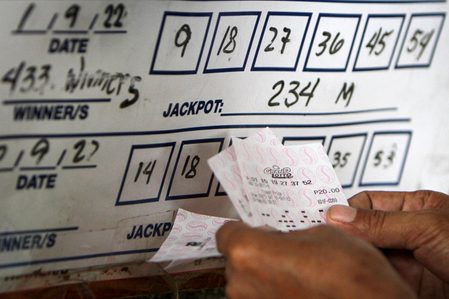
![[Vantage Point] China’s silent invasion of the Philippines](https://www.rappler.com/tachyon/2024/07/TL-china-silent-invasion-july-16-2024.jpg?resize=257%2C257&crop=318px%2C0px%2C720px%2C720px)

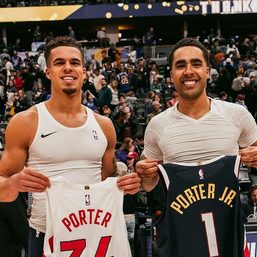
![[Vantage Point] POGOs, the quintessential milking cow](https://www.rappler.com/tachyon/2024/03/pogo-quintessential-milking-cow-march-23-2024.jpg?resize=257%2C257&crop=431px%2C0px%2C1080px%2C1080px)

![[Newsstand] What do we do about Alice Guo?](https://www.rappler.com/tachyon/2024/05/What-do-we-do-about-Alice-Guo.jpg?resize=257%2C257&crop_strategy=attention)


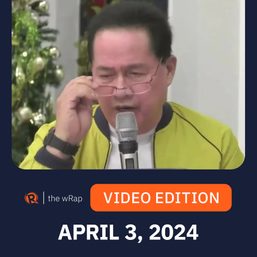
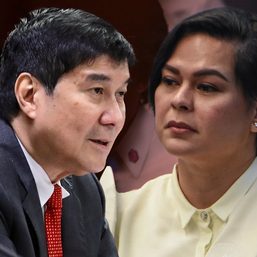




![[WATCH] Bamban POGO scandal: There’s a bigger fish than Alice Guo](https://www.rappler.com/tachyon/2024/07/inside-track-tcard-bamban-pogo.jpg?resize=257%2C257&crop=435px%2C0px%2C1080px%2C1080px)
There are no comments yet. Add your comment to start the conversation.